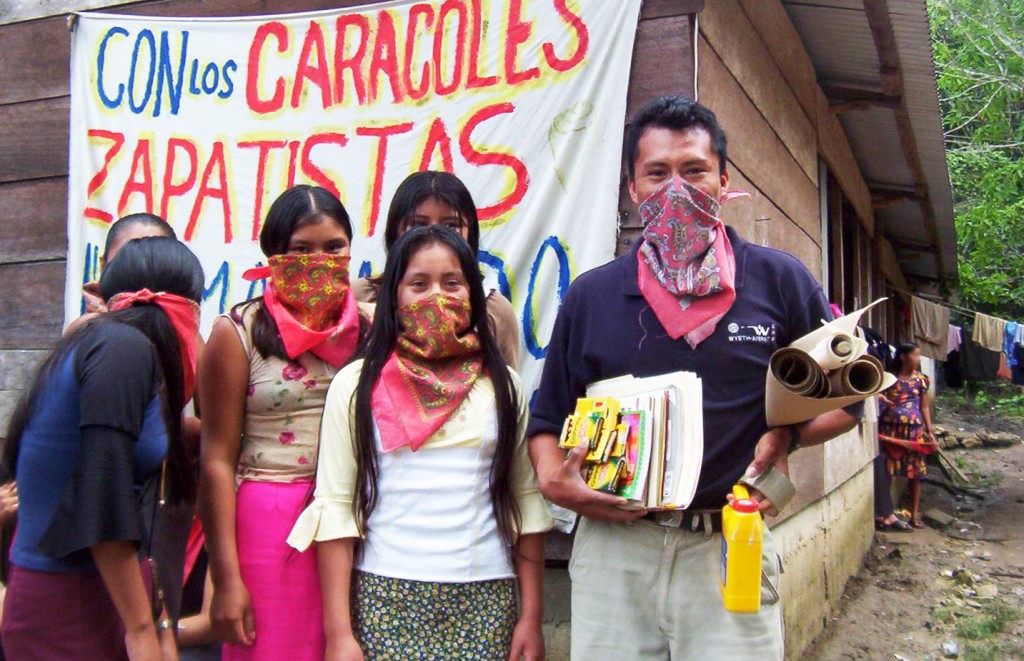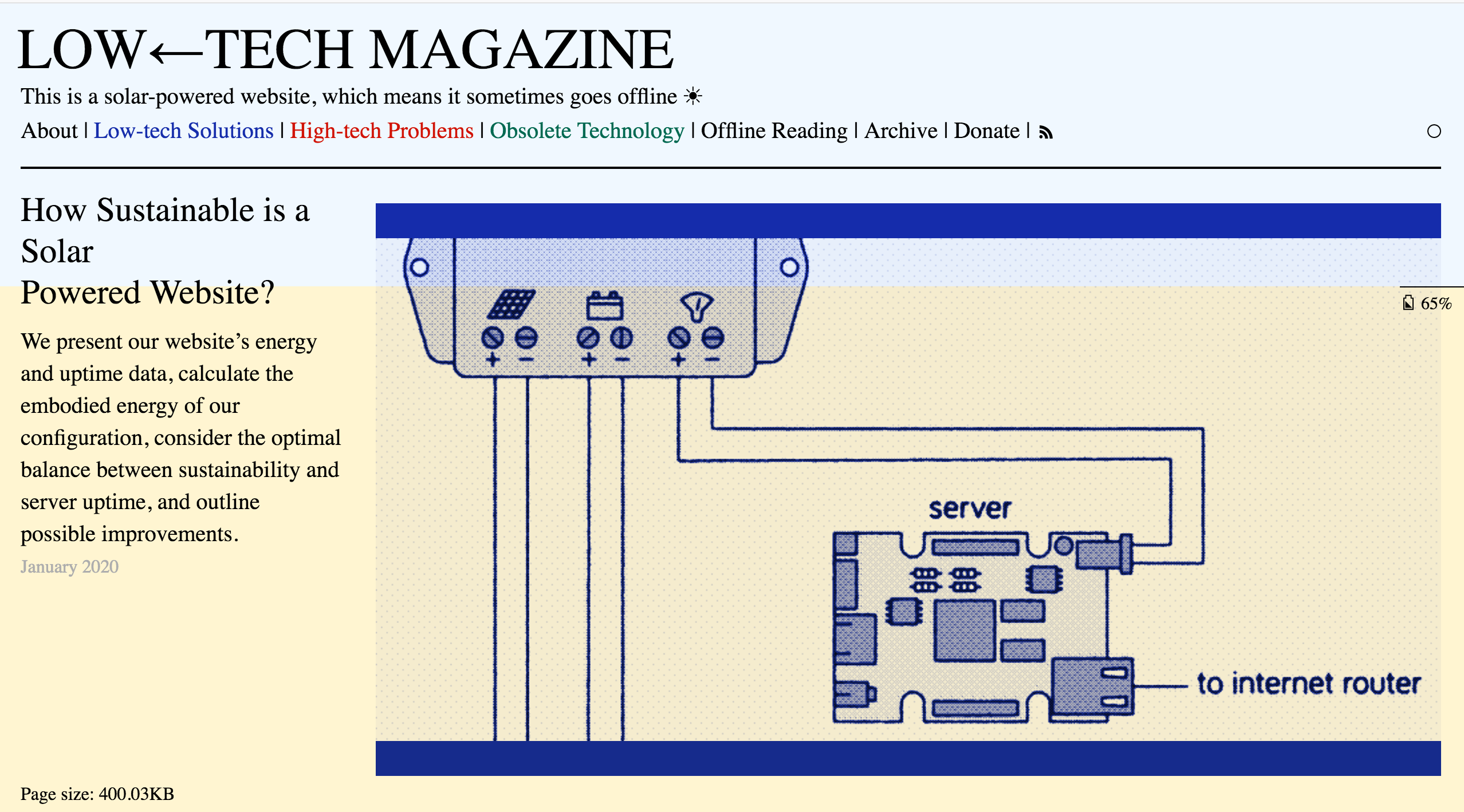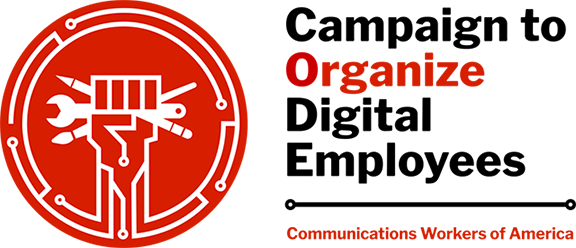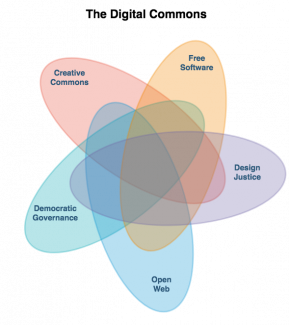
The ever intensifying climate crisis is an existential threat. It was brought upon by people designing and building technology reliant upon the extraction and burning of fossil fuel. That and an economic system reliant on ever increasing consumption, demanding energy production unsustainable to the planet.
From September 20th through September 27th millions of people across the globe skipped school, walked out of workplaces, and joined in the streets to demand bold, swift action for climate justice. Many in the tech industry, including ourselves, went on digital strike, shuttering our websites for the day to join in the action. In fact, we partnered with 350.org to improve the mapping tool used to help people organize and find climate strike actions.
But what does bold, swift action mean? What is required of us to respond to the enormity of this climate catastrophe?
One thing is for certain - it won't be fixed with the same values, systems and forces that ushered in this emergency.
There are many ideas out there on what we should do, with many different names. Whatever the specifics, the path to climate justice rests on our ability to move away from extractive relationships with our earth and quickly grow regenerative relationships instead. Many are calling this the Commons Transition. Those of us working in the tech industry have tremendous influence in participating in and assisting with this transition.
What is the Commons?
The Commons is a way to organize and manage resources collaboratively among the community of producers and users. They exist outside of both the public and private sector. The commons is flourishing all around us, particularly where indigenous communities have been able to defend themselves and their land. The Zapatista caracoles in Chiapas, Mexico, the confederalist communes of Rojava, and the Potato Park in Peru are just a few examples. All are a blend of retaining generations-long wisdom of living in right relation, an unlearning of the extractive patterns that have gained dominance, and innovating new ways of commoning.

Free and open-source software movements put into practice much of the Commons' values. Combining this approach to software development with cooperative, community-based economic models can help us build technology that is sustainable and helps facilitate and defend the commons.
The Tech Industry's Role in the Commons Transition
As mentioned, the commons is all around us. Yet these commons are constantly battling enclosure, and many more commons projects need our support to take hold. The first step is to take stock of the commons we are currently part of. Millions of us are already members of credit unions, food cooperatives, worker-owners in cooperatives, purchasers of cooperatively produced goods and visitors to cooperatively managed parks and open spaces.
This morning, I walked to the Westwood Food Cooperative to buy produce and am now typing this essay at Kahlo's, a Mexican-American family-run restaurant with a plant-heavy menu. I am a worker-owner of Agaric, a tech cooperative. We're also members of MayFirst, a cooperative itself which provides the hosting infrastructure for our clients. The commons are everywhere.
How might we better support the commons we are already part of?
The best way to find is to ask. To find commons near you, visit SolidarityEconomy.us. It's not comprehensive, but it's a good start.
Once better connected to the commons you are part of, examine what other aspects of your life can align with the commons. If you tend to shop at a big box store, look into local food co-ops and community supported agriculture (CSA). If you work for an agency, consider how you might transition it to a cooperative with a social-mission prioritizing sustainable practices. If you don't see your company moving in a democratic direction, you can still shift it that way by unionizing. These are tall orders, but then again, these times call for tall orders.
Lead By Example, But Towards Systemic Change
The quickest way to effect change is to work within our spheres of influence. But one person shopping at a food co-op instead of Wal-Mart is just a drop in the bucket. How do we make our individual actions add up to the systemic change we need? In the essay "We Can't Do It Ourselves,"
published in Low Tech Magazine, Kris De Decker explains,
A sustainability policy that focuses on systemic issues reframes the question from “how do we change individuals’ behaviours so that they are more sustainable?” to “how do we change the way society works?”.
De Decker elaborates that,
Addressing the sociotechnical underpinnings of “behaviour” involves attempting to create new infrastructures and institutions that facilitate sustainable lifestyles, attempting to shift cultural conventions that underpin different activities, and attempting to encourage new competences that are required to perform new ways of doing things.
Low Tech Magazine is leading by example by running their website completely off of solar power they themselves produce. I encourage fellow designers and developers to check out the site and the detailed write up on the meticulous, thorough work they did to minimize the site's energy usage and rig up solar panels to power the server the site runs on.

Similarly, however we can, as tech workers we should be building our technology sustainably and in service of regenerative relations.
Use and Demand Renewable Energy
We must move away from fossil fuels and towards clean, renewable energy. For Agaric, this means getting the hosting providers we partner with to use clean, renewable energy. Most of our sites run on MayFirst, a tech cooperative we are members and leaders within. I started a discussion thread to transition our tech stack to clean, renewable sources . The discussion has become an initiative. Our work is just getting started, but this shows the benefit of meeting our needs democratically.
You can see where your hosting providers stand by using https://ecograder.com
If your host isn't on 100% renewables, talk to them and work to get them there.
You can also choose to go with a hosting provider that's already green, such as https://greenhost.net
Design for Energy Efficiency
Web development trends have lead to massive growth in the size and resource usage of websites. There are counter trends appearing in response - static site generators, lean content strategies and sustainable design. Just as we care about the energy efficiency of our cars, homes and appliances we should care too about the carbon footprint of our websites and apps. Plus, simpler, efficient online tools facilitate easier maintenance and faster load times for users (especially important for those on limited data plans and older devices). As contributors and proponents of Drupal, there is certainly room for improvement within our practice for more sustainable design.
Divest, Invest for the Transition
Technology is not neutral. What it is put into service of has tremendous impact. The climate strike demands of the Tech Workers Coalition are a great starting point.
- Zero carbon emissions by 2030
- Zero contracts with fossil fuel companies
- Zero funding of climate denial lobbying or other efforts
- Zero harm to climate refugees and frontline communities
Work to formalize these principles at your own workplace and make them public. If you have contracts with fossil fuel companies or climate deniers work to end them. A great group to link up with around this is ClimateAction.tech
Unionize to Build Counter Power

Not all of us work in democratic workplaces. For most of us, creating change in hierarchical startups and corporations is more difficult. Most companies are oriented towards shareholder needs, not worker or planet needs. Unions build counter power, forcing business to take our needs into account.
This is a daunting task. However, worker self-organizing is on the rise, especially in our industry. What starts as an internal petition signed and sent to management, can build to lasting formations that can shift companies to align with the values we need to make the transition.
Joining the Campaign to Organize Digital Employees is a great way to get started.
Conclusion
Transitions aren't easy. They're uncomfortable, they require risk and there's no guarantee of success. Still, fixing our sights on a world of care, balance and right relation with the earth and then making it so, in our home and in our workplace is deeply rewarding.





Comments
Add new comment